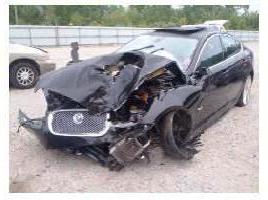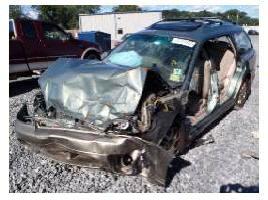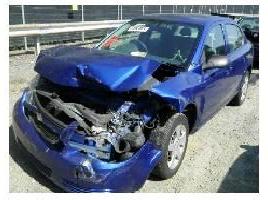Ask an Attorney a Question for FREE!
Before the Statement: Prepare!
You must be ready to answer very intrusive questions, and risk the possibility of being framed
Before the statement:

Before you give a recorded statement you have to take certain precautionary steps. Because taking these steps will take time, it is the number one reason you should never give a statement when you first report a claim.
A few things need to be double checked before you can give an accurate account of events.
- Before giving the statement, you must have time to go over all the details. Some statements could take an hour, sometimes two, depending on the difficulty of the accident and the injuries. The average recorded statement is about 20 minutes (only for reference).
- Set up a time that works for you, and try not to do it before lunch. The adjuster will rush you if you are closer to lunch time.
- Collect all the information available to you: location, street names, names, telephone numbers, witnesses, policy numbers, description of the vehicles, police department that responded to the scene, police report number, name of physician that saw you at the ER, etc.
Do this before giving your statement or before calling your adjuster, not while you are having a telephone conversation. This is why it is best to have the Police Crash Information Form or the actual police report with you.
Also have an accident diagram with you (draw a picture of what happened). This will refresh your memory about the details. - READ YOUR POLICY before doing the statement. This is critical. The insurance adjuster will be determining many things - fault, injury severity, damages, and coverage. Coverage could be denied based solely on what you say.
You are better off understanding your coverages beforehand, so you can determine what the adjuster is really looking for. - Tell the adjuster that you are willing to give the statement IF AND ONLY IF they provide a copy of the actual recording, and a transcription of the tape. This is very important. Adjusters tend to say things like, “Sir, you told me in the recorded statement that your light was red.”
Of course, you must ask this of your adjuster before actually giving the statement, not during or after. Use this leverage to work for you.
You can always read these transcriptions and realize whether you stated this or the adjuster is making an incorrect inference.
Without the transcription, the insurance adjuster has all the power and you cannot double check your words.
If the adjuster is reluctant to do this (she should not be, if she is then there is something fishy going on), send them a letter.
In this letter, explain the following - that you are in compliance with the terms of the policy, your duty to cooperate, but you will only submit a recorded statement if and only if you can have a transcription of everything that is said and asked. - You could also tell the adjuster that you will give the statement, however, your recorder will also be turned on (you still must ask for a written transcription). This tends to make adjusters uncomfortable.
They know that you could use what they say in your favor, so the questioning will not be as drilling. Remember, two can play the recording game. Again do this before the statement. Do not record someone without telling them first that YOU are going to record them. - Remember that you can decline to answer any question, or at least ask the adjuster the motive of the question.
For example, they might ask you what color your car is. And the next question could be “Where were you coming from?”
The origin of the trip could be considered a private matter, but by asking, YOU can determine if it is a question worth giving an answer to.
In the case of the origin of the trip, adjusters want to know if you were in a bar or a place where alcohol is served. They will explain this only if you ask. - If you think that the question is not pertinent, or you think that there is no correct answer to the question, you can decline to answer by politely saying “I decline to answer. Next question please.”
If the adjuster presses the issue, you can say “I agreed to give a recorded statement that is what I am doing.” If it gets too confrontational, you can answer “I don’t know, or I don’t remember.”
These two phrases can keep you out of a lot of trouble.
If the adjuster presses the issue again, then answer, “I do not know, next question please.”
“I do not know” could be the simplest and best answer you can give to an adjuster. You do not have to answer every question.
Also, you do not have to answer “loaded questions.” - Be ready to answer every question asked. If they ask you what color was the light, your answer should be “a color” or “I do not know”, not the fact that the other person came and hit you. Do not volunteer information.
Adjusters will take note of everything you say and these things will be used against you when you discuss liability, coverage, and/or injury settlements.



Recorded Statements Introduction
Why do they want a recorded statement?
Before the statement, you must prepare for what you are going to say!
The Actual Statement, What questions are they going to ask?
After the statement. What do you do?
Defeating a Bad Recorded Statement
|
For a Free Review of Your Case
Please Call (866) 878-2432 |


